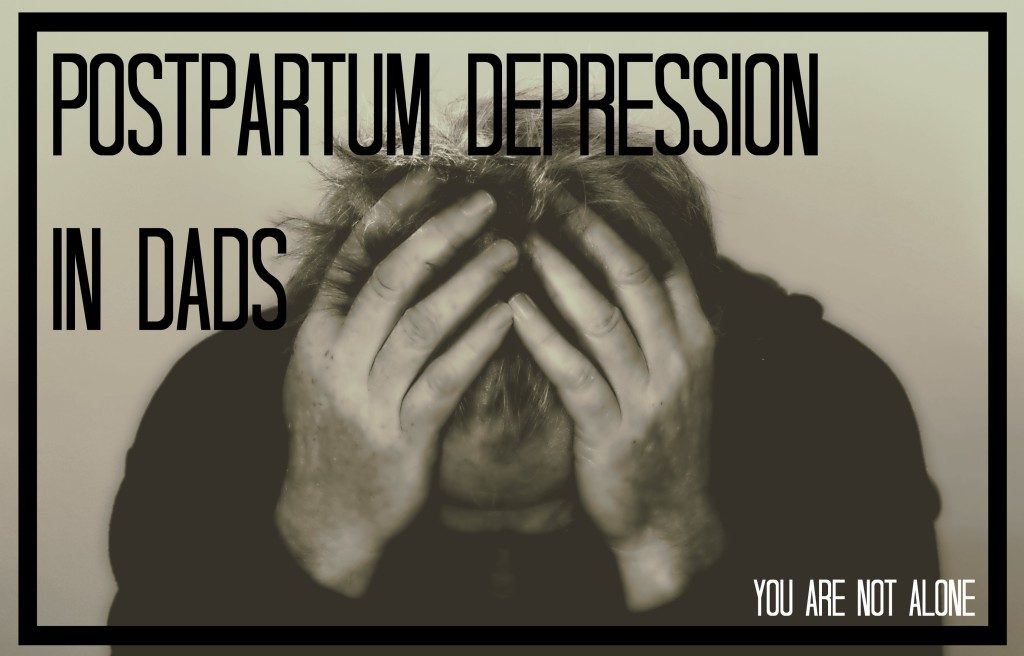You’ve heard about postpartum depression in moms. But, are you aware that dads can suffer too? Depression really does not choose a side or a gender. Though the numbers are not as high compared to the females, probably because only a few could bring it up, data is consistent in showing that PPD in men can happen and is happening.
“A new study discovers prenatal or postpartum depression is not limited to mothers. About 10 percent of fathers experience these forms of depression, with rates being highest in the three- to six-month postpartum period,” says Rick Nauert PhD, clinical psychologist.

What could be the reason behind PPD in men? Is depression is that contagious? How are the symptoms relieved?
Dad Confessions
“When I was finally able to touch my daughter, that’s the moment I realized I was panicking.”
Postpartum depression in dads can vary in intensity and severity; it’s different for everyone. Although, no matter how different the manifestations are, it feels the same for those who admit that they are suffering. How does postpartum depression in men feel like?
- Like a nightmare, one has to wake up to every waking day
- Terrified that child-rearing can turn one’s life around
- Messed-up routine
- Never going back to hobbies, friends, and activities
- Feeling trapped or caged in an overwhelming, new life
- Work late hours at work to escape responsibilities at home
- Feeling guilty for only going through the motions of one responsibility after the other
- Thinking that he is not good enough to be a dad
- Uncontrollable crying
- Full-blown panic attacks.
- Unexplained irritability or anger over the simplest things

What The Studies Say
“The observation that expecting and new fathers disproportionately experience depression suggests that more efforts should be made to improve screening and referral, particularly in light of the mounting evidence that early paternal depression may have substantial emotional, behavioral, and developmental effects on children,” says James F. Paulson, Ph.D. and Sharnail D. Bazemore while conducting their meta-analysis to determine estimates and variability in rates of paternal prenatal and postpartum depression and its association with maternal depression.
In their recent meta-analysis, the Scandinavian Journal of Psychology has stated that more than 8% of men suffer from postpartum depression from childbirth and can last up to a year. Women have a higher estimation reaching up to 19%. Despite the difference, experts at the American Psychological Association suspected that a vast majority of men who may have PPD are underdiagnosed, resulting in a low number of listed cases.
Furthermore, a report made by the Journal of the American Medical Association showed that 10% of men around the world have manifested signs and symptoms of depression or what they called paternal postpartum depression (PPPD). The condition notably happens from the beginning of the pregnancy and can last for six months from the moment the baby was born.
“In this 2010 meta-analysis published in The Journal of the American Medical Association, researchers reviewed 43 studies with over 28,000 participants and found that 10 percent of men had prenatal or postpartum depression. That’s more than double the rate of men who suffer from depression in the general population — 4.8 percent,” according to Margarita Tartakovsky, M.S.
With all the data confirming that postpartum depression in men is occurring, there have been significant health concerns regarding the condition which has been immensely neglected.
Indicators Of PPPD
Numerous factors can cause paternal postpartum depression. What are some of them?
- When Their Partners Have PPD
One of the main factors that could cause postpartum depression in fathers is if their partners have already been suffering from depression. If both parents have depression, this will result in destructive consequences not only for their relationship but most importantly for their baby.
- When They’ve Had Depression In The Past
Depression is a condition that comes and goes; though it can be treated, certain elements might trigger its recurrence. This ideation holds true especially for fathers who once struggled with depression.
- Hormonal Fluctuations
It might be baffling to believe that hormones can cause paternal postpartum depression but it can happen. Studies are citing that male hormones also tend to shift during pregnancy and after childbirth. Though the reasons for this are still obscure, they are blaming it on the drop in testosterone levels and the rise of cortisol, estrogen, and prolactin.
- Prevalent Stressors
A lot of experts speculate that postpartum depression in fathers is mainly prevalent in this generation because they are now experiencing similar economic, psychological, social, and emotional stressors that mothers have been experiencing since time immemorial. Unemployed men who take over the responsibilities at home, especially those that are left with childcare harbor a lot of stress.
Coping Is A Must

To get your life back and bask in the happiness of being a dad, you need to cope. First, you need to talk about it with your partner or family members; this is the time when you acknowledge that you have a problem and want to get better. If confiding to your significant other is not enough, you can seek the help of a therapist to provide counseling and proper medication. And remember, never disregard your health; find time to take care of your well-being.